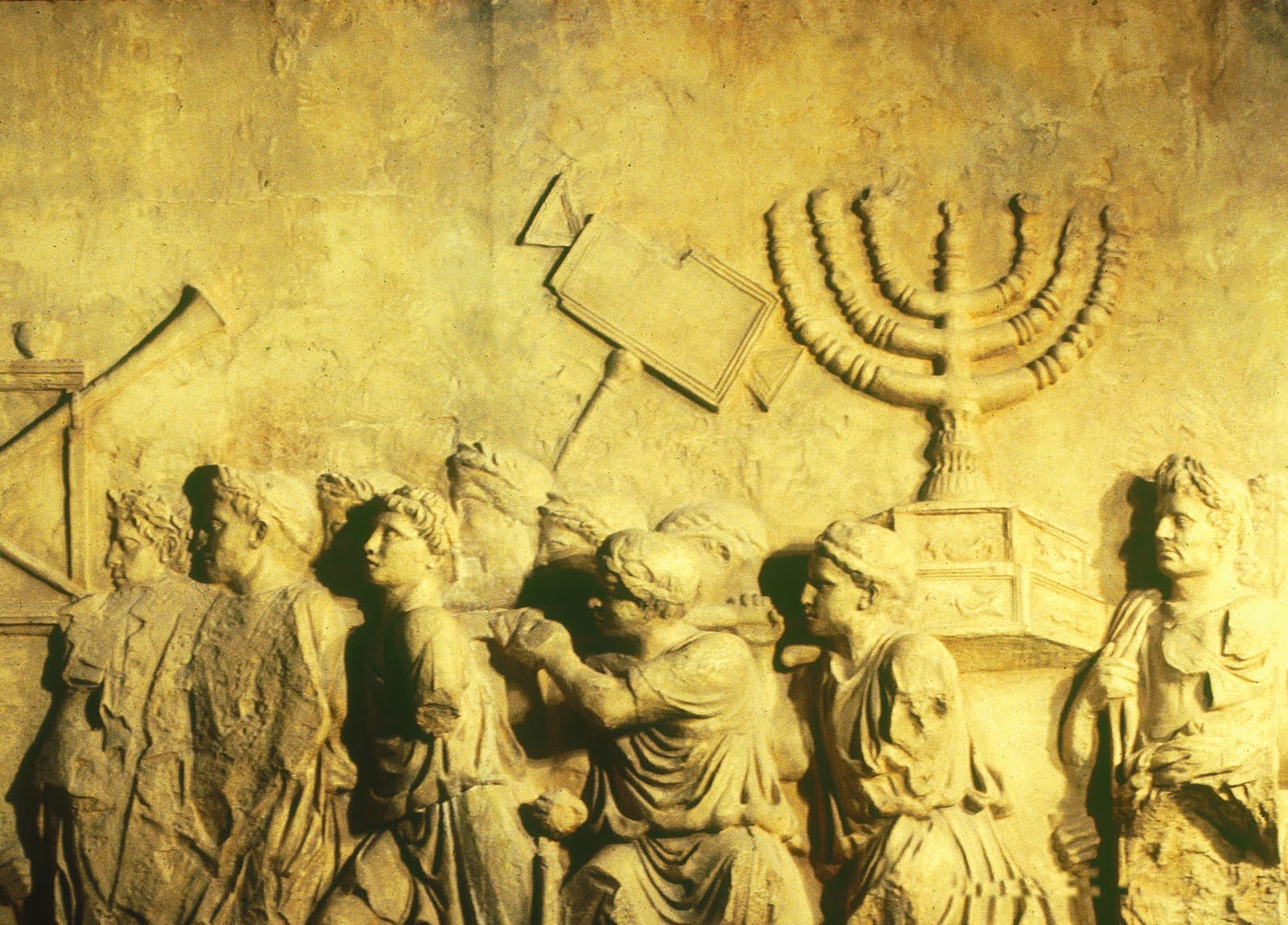October 11, 2011
Moving to wordpress
To focus on 'The Gospel According to the Romans', I have moved blog activity to http://robinhl.com
September 24, 2011
Jewish Monotheism, Roman Polytheism. Atheism
It is amusing to think that many religious Jews and Romans saw each other as atheists. The Jews felt that polytheism showed that Romans had no concept of the supreme Creator, and were therefore atheists. The Romans felt that Jews acknowledging only their one tribal god showed that Jews had no concept of the rich and diverse spiritual nature of the universe, and were therefore atheists.
So it goes.
The Jews had a point: the Roman gods didn't look like they were capable of creating a planet, yet alone an entire Universe. They weren't an orderly or spiritually uplifting bunch.
The Romans had a point: the Jews were claiming that there was only one God, and that He was their tribal god, and no one else's counted. That's a no-win situation for anyone but Jews.
Presumably a real atheist, whether Roman or Jew, didn't give a damn either way.
So it goes.
The Jews had a point: the Roman gods didn't look like they were capable of creating a planet, yet alone an entire Universe. They weren't an orderly or spiritually uplifting bunch.
The Romans had a point: the Jews were claiming that there was only one God, and that He was their tribal god, and no one else's counted. That's a no-win situation for anyone but Jews.
Presumably a real atheist, whether Roman or Jew, didn't give a damn either way.
August 2, 2011
The Legacy of Genocide
The problem with Deuteronomy 20 is that the religious requirement for the genocide of the previous inhabitants of Palestine leaves a cultural legacy that continues today with ongoing ethnic cleansing.
I see only two ways around it:
1) the corruption apology: agree that Moses was a prophet who was communicating God's word, but decide that the words we have today are only an unfortunate corruption of the original message, and God would not have called for genocide;
2) the monotheist apology: decide that the polytheism of the original Palestinians was the reason for calling for their slaughter (and a legitimate reason for uprisings against the Roman Empire), and that the Palestinians of today should be treated more equably because they are monotheists who - whether Muslim or Christian - recognize Moses as a prophet.
The first of these is in accord with Islam, but not acceptable to religious Jews. The second one might work for everyone, however. I don't know if anyone is advocating it within Israel, but I assume someone must have thought of it.
I see only two ways around it:
1) the corruption apology: agree that Moses was a prophet who was communicating God's word, but decide that the words we have today are only an unfortunate corruption of the original message, and God would not have called for genocide;
2) the monotheist apology: decide that the polytheism of the original Palestinians was the reason for calling for their slaughter (and a legitimate reason for uprisings against the Roman Empire), and that the Palestinians of today should be treated more equably because they are monotheists who - whether Muslim or Christian - recognize Moses as a prophet.
The first of these is in accord with Islam, but not acceptable to religious Jews. The second one might work for everyone, however. I don't know if anyone is advocating it within Israel, but I assume someone must have thought of it.
July 31, 2011
Whose Palestine?
When the Romans incorporated Palestine into their Empire, they expected that - as with other conquests - the inhabitants would accept the new reality within a couple of years or a couple of generations, and would value the peace and stability and enhanced economic opportunities. The Romans had no intention of wiping out local inhabitants. They were happy to incorporate local gods into their pantheon, and expected the Jews to allow the worship of whatever anyone felt like worshiping. Many Jews were fine with this.
But religious Jews had a different attitude, religiously and historically. When they had conquered Palestine over a thousand years previously, their leader relayed a message from their god on how to treat the Palestinians of those days, a message that remains in the Bible to this day, in Deuteronomy 20, 16-18:
"But of the cities of these people, which the LORD thy God doth give thee for an inheritance, thou shalt save alive nothing that breatheth:
But thou shalt utterly destroy them; namely, the Hittites, and the Amorites, the Canaanites, and the Perizzites, the Hivites, and the Jebusites; as the LORD thy God hath commanded thee:
That they teach you not to do after all their abominations, which they have done unto their gods; so should ye sin against the LORD your God."
So the Romans saw Palestine as a province or kingdom or whatever, that anyone should be able to live in and follow their own customs so long as they paid taxes and didn't cause trouble; while the more religious of the Jews saw Palestine as their land alone, given to them along with a requirement to commit genocide and ethnic cleansing against anyone else who wanted to live there.
There was no room for compromise. The resistance against the Western Occupation continued for a couple of centuries, until the Romans sacked Jerusalem and destroyed the Temple, and finally kicked the Jews out of the province.
But religious Jews had a different attitude, religiously and historically. When they had conquered Palestine over a thousand years previously, their leader relayed a message from their god on how to treat the Palestinians of those days, a message that remains in the Bible to this day, in Deuteronomy 20, 16-18:
"But of the cities of these people, which the LORD thy God doth give thee for an inheritance, thou shalt save alive nothing that breatheth:
But thou shalt utterly destroy them; namely, the Hittites, and the Amorites, the Canaanites, and the Perizzites, the Hivites, and the Jebusites; as the LORD thy God hath commanded thee:
That they teach you not to do after all their abominations, which they have done unto their gods; so should ye sin against the LORD your God."
So the Romans saw Palestine as a province or kingdom or whatever, that anyone should be able to live in and follow their own customs so long as they paid taxes and didn't cause trouble; while the more religious of the Jews saw Palestine as their land alone, given to them along with a requirement to commit genocide and ethnic cleansing against anyone else who wanted to live there.
There was no room for compromise. The resistance against the Western Occupation continued for a couple of centuries, until the Romans sacked Jerusalem and destroyed the Temple, and finally kicked the Jews out of the province.
March 29, 2011
New writings from the year dot
So metal books of credit-card-sized lead sheets have turned up in Jordan... If they're genuine, they could be from the years immediately before or after Jesus. "The year 'dot'," some call it. And, written in coded ancient Hebrew, they could be about Judaism or - as some of the patterned drawings hint - they might be about very early Christianity.
How nice to think that there might still be new writing to be found, about those very early years of Christianity - back before Christianity began, back before St. Paul, back when Jesus was a Jewish rabbi.
How nice to think that there might still be new writing to be found, about those very early years of Christianity - back before Christianity began, back before St. Paul, back when Jesus was a Jewish rabbi.
Subscribe to:
Posts (Atom)




